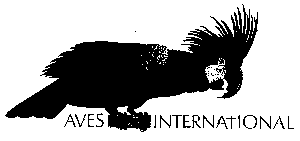 |
|
|
|
|
|
|
|
|
|
|
|
|
|
|
|
|
|
|
|
|
|
|
|
(prices and availability) |
 |
Q. What is the difference between a breed and a species?
A. From time to time, we are asked what "breeds of birds we have". I think there is a
lot of confusion about what is a breed and what is a species. A generic dog (Canis familiaris) is a species, but a Chihuahua, Poodle, or Collie is a breed of dog. This is because it is different from its original wild-type species, just like a poodle is different from the original wild dog ancestor of today's modern dog breeds. Therefore, African Greys, Scarlet Macaws, Yellow-Naped Amazons, Sun Conures, Umbrella Cockatoos etc etc, are all SPECIES, NOT BREEDS of birds, as domestic-bred babies from these species are not morphologically different from their wild-caught parents or ancestors.
Q. What is the best way to teach a bird to talk (mimic)?
A. I recommend that training sessions be in a quiet room (no tv, no radio, no people talking in the background). Look at the bird directly (make eye contact) at the bird's level and speak a simple phrase such as "hello sweet bird" or whatever short phrase you wish the bird to repeat. Say the phrase very clearly and slowly, enunciating each word crisply. Do not talk rapidly at the bird as you would to a human in conversation because the bird will hear "blah, blah, blah, blah, blah" and repeat this to you in a garbled mumble! I have a special higher pitched tone "training voice" that I use to teach my own pets. Repeat one or two simple phrases over and over and over again, several times a day if possible. Say the same phrase several times, every time you see the bird. After each training session, praise the bird and give it a special treat food that it loves so that it looks forward to the training session.
Q. How can I control a bird to prevent it from walking up my arm to my shoulder?
A. The control is all in the thumb! When you pick up a bird, hold your hand with four fingers together in a straight line and the thumb raised. Once the bird is on your hand, use your thumb to hold its toes and/or raise the thumb to prevent the bird from climbing onto your wrist. If a bird is climbing up your arm, you have lost control! It is generally not a good idea to allow MOST birds to sit on your shoulder. On your shoulder, a bird is in the "driver's seat", sort of like a person with two heads- one head being an egomanic parrot!